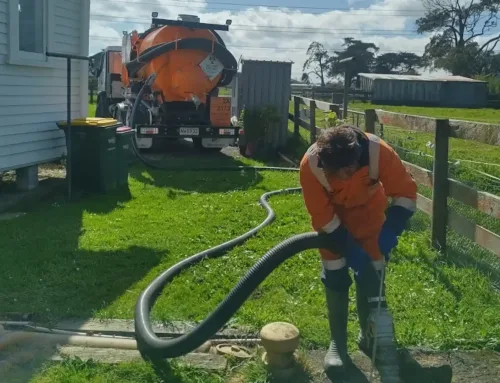What Does Reclaim Waste Do?
What Does Reclaim Waste Do?
Blog Article
Some Of Reclaim Waste
Table of ContentsLittle Known Questions About Reclaim Waste.The smart Trick of Reclaim Waste That Nobody is Talking AboutReclaim Waste Fundamentals ExplainedThe Greatest Guide To Reclaim WasteExcitement About Reclaim Waste
Residential sewer waste refers to the waste and products from a property septic storage tank. The correct management and disposal of domestic sewer waste need fluid waste to be moved to a sewage therapy plant where the appropriate techniques and devices are applied to purify and dispose of waste.
Commercial waste typically consists of potential threats, such as combustible materials or a combination of liquid and solid waste products, and requires a much more advanced and in-depth disposal process. The disposal of industrial waste commonly includes the filtering of waste before transport to make certain secure and proper disposal. Hazardous waste is developed from by-products and runoff of industrial processes and production.
This sort of waste can not utilize the very same sewer management transportation or procedures as septic or industrial liquids. The hazardous waste monitoring process requires the evaluation and screening of fluid waste prior to it undergoes the disposal procedure (liquid waste disposal). Runoff waste is the liquid waste that comes from runoff and excess stormwater in very booming locations or cities
Overflow waste can cause contamination and flooding otherwise dealt with correctly. Find out a lot more concerning sewer cleansing and waste management. Making sure proper waste administration can stop disasters and reduce ecological damage. Both people in property setups and specialists in industrial or production markets can profit from comprehending the procedures and laws of fluid waste monitoring.
The Only Guide for Reclaim Waste
Contact PROS Services today to learn more about our waste monitoring and disposal solutions and the proper means to look after the liquid waste you produce.
(https://penzu.com/p/1f225eb6893bd9aa)This supposed 'wastewater' is not just a vital source yet, after treatment, will be launched to our land, rivers or the sea. Made use of water from commodes, showers, bathrooms, kitchen sinks, washings and commercial processes is recognized as wastewater.

water made use of to cool equipment or tidy plant and devices). Stormwater, a form of wastewater, is runoff that flows from farming and city locations such as roofs, parks, gardens, roadways, paths and rain gutters right into stormwater drains, after rain. Stormwater streams untreated directly to neighborhood creeks or rivers, ultimately getting to the ocean.
The Ultimate Guide To Reclaim Waste
In Queensland, a lot of wastewater is dealt with at sewage therapy plants. Wastewater is moved from domestic or industrial sites with a system of sewers and pump terminals, called sewerage reticulation, to a sewage therapy plant. City governments build, maintain and run most sewer treatment plants. Operators are certified under the Environmental Management Act 1994 to discharge cured wastewater at an appropriate ecological criterion right into rivers.
The Division of Natural Resources recommends neighborhood federal governments about managing, operating and preserving sewerage systems and therapy plants. In unsewered locations, city governments may call for homeowners to mount private or household sewage treatment systems to deal with residential wastewater from bathrooms, view kitchens, restrooms and laundries. The Department of Natural Resources authorises using house systems when they are proven to be effective.
In some brand-new communities, treatment of some stormwater to get rid of litter, sand and crushed rock has actually begun utilizing gross contaminant catches. Wastewater treatment takes place in four phases: Gets rid of solid issue.
Wastewater then moves into huge storage tanks where solids clear up and are gotten rid of as sludge. Oil and residue are skimmed from the surface area. Utilizes small living organisms referred to as micro-organisms to damage down and remove continuing to be dissolved wastes and great particles. Micro-organisms and wastes are incorporated in the sludge. Removes nitrogen and phosphorus nutrients that could trigger algal blooms in our waterways and endanger water life.
Reclaim Waste - Truths
Nutrient removal is not available at all sewer treatment plants because it needs costly specialised equipment. Clear fluid effluent generated after treatment might still contain disease-causing micro-organisms - liquid waste removal.

This typically indicates wastewater needs to be treated or contaminants removed prior to it can be discharged to waterways. A lot of wastewater flows right into the sewerage system. Under the Act, city governments provide approvals and licences for eco appropriate tasks (ERAs) including wastewater releases that might have a neighborhood effect. The division carries out authorizations and permits to Ages including wastewater launches that may have a local or statewide effect.
Unknown Facts About Reclaim Waste
Surveillance supplies accurate info concerning water top quality and can confirm that licence problems are being met. The info gotten with tracking offers the basis for making water high quality choices.
Report this page